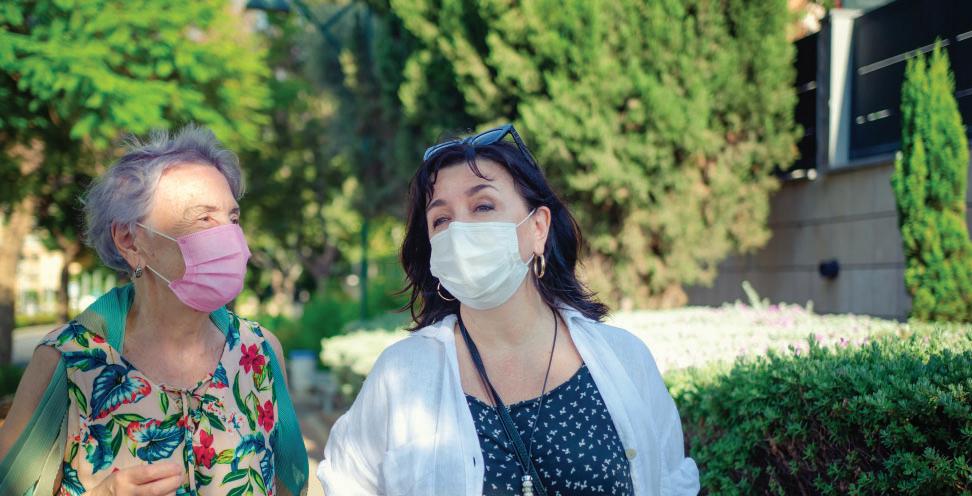
2 minute read
RESEARCHER STUDYING CARE AND SAFETY PRACTICES IN
HOME-BASED CARE DURING COVID-19 PANDEMIC
Findings Will Help Prepare For Future Health Crisis
Advertisement
In the early days of the COVID-19 pandemic, when the world was reeling from the growing threat to our health and wellbeing, Carrie Wendel-Hummell’s thoughts went immediately to a group of people she knows well and is passionate about serving: older adults, people with disabilities, and the workers and caregivers who make it possible for these folks to remain in their own homes.
Wendel-Hummell, Ph.D., is the director of the Center for Research on Aging and Disability Options at the University of Kansas School of Social Welfare. While everyone else was hoarding toilet paper, mastering the art of the Zoom call, and wiping down their groceries, Wendel-Hummell got to work on winning a highly competitive federal grant to study how the pandemic has challenged those who receive and provide support, how they have adapted, and how in-home services can adjust, both now and in the future.

She had four weeks to build a research team, prepare research questions, connect with community stakeholders, and write the grant. “It was an intense few weeks,” she laughs, remembering her scramble. Only the top two percentile of the grants submitted were selected for awards, she later learned, and she was delighted her team’s application was one of them.
Awarded $646,620 in funding from the U.S. Department of Health and Human Services
Fueled by $646,620 in funding from the U.S. Department of Health and Human Services, through the Agency for Healthcare Research and Quality, her research team will conduct more than 100 in-depth interviews and over 800 surveys with homebased long-term services and supports consumers, personal care attendants, family caregivers, and agency providers in Kansas. The topic will be safety measures, and delivery of services during the pandemic.
Tracey LaPierre, associate professor of sociology, and Danielle Olds, research assistant professor in the KU School of Nursing, are co-principal investigators, along with Wendel-Hummell. Topeka Independent Living Resource Center is also a partner in the research. The grant term began in January 2021 and will conclude June 2022.
RESEARCH WILL EXPLORE WHAT WORKED WELL, AND WHAT CAN BE IMPROVED
During the pandemic, it seemed there was nowhere safer than their own home for people who were at increased risk for contracting COVID-19. But home-based care is not without its own risks. It is less regulated than care provided by institutions, like skilled nursing centers. There is an increased risk of health workers spreading the disease to multiple families as they visit home after home. And the very flexibility and freedom that comes with providing care in home-based settings can make it challenging to identify, implement, or enforce best practices, especially when guidance is changing rapidly and surrounded by many myths and unknowns, as was true during the COVID-19 pandemic.
These challenges left the KU research team with some big questions to explore during this study:
• How did the system respond to the long-term services and supports care needs of Medicaid Home and Community Based Support (HCBS) consumers during the pandemic?

• How did external and structural factors combined with worker and consumer attitudes, beliefs, and behaviors toward COVID-19 affect care processes?
• How did adaptations to COVID-19 impact (1) the degree to which consumer care needs were met; (2) how satisfied consumers were with their care; and (3) overall consumer, caregiver, and worker well-being?
The answers to these research questions will help the team identify policy changes and care practices that can improve longterm services and support care for home-based consumers during future pandemics, Wendel-Hummell says. The team will share their findings with stakeholders throughout Kansas, Medicaid administrators and policymakers at the federal and state level, and fellow researchers.







